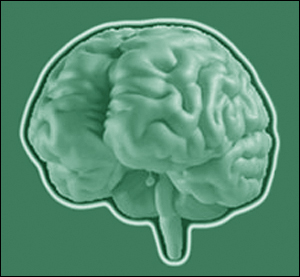Teens in the 60s did a lot of drugs and they turned out okay, right? Well…maybe some of them would have turned out better without the drugs.
Saying that the human brain is a complex system is an understatement. Four weeks after conception, the brain is already growing and changing. Hundreds of thousands of neurons are being added each minute. While the brain is fully grown by adolescence, the wiring is still incomplete.
 Toss teen substance abuse into this delicate process, and the brain might never develop to its full potential.
Toss teen substance abuse into this delicate process, and the brain might never develop to its full potential.
Teenage drug abuse is an incredibly serious matter, and the statistics only tell part of the story. In 2013, nearly 23 percent of high school seniors admitted to using marijuana in the past month, and 40 percent did not consider regular use harmful.
More teens die from fatal overdoses of prescription drugs than from cocaine and heroin combined.
When asked about alcohol consumption, one in six high school seniors admitted to “binge drinking” in the past two weeks, according to the U.S. Department of Health and Human Services.
The negative effects that drugs can have on the developing teen brain tell the rest of the story. A Duke University study showed that persistent use of marijuana can lead to an 8-point drop in IQ, and the younger a person starts abusing marijuana, the greater the IQ loss.
Drugs alter the developing brain’s structure, essentially leaving a footprint on the brain. This footprint can then forever affect a person’s memory, ability to learn, solve problems and their responses to sensory experiences. The brain is so sensitive that even prenatal stress can increase the likelihood of a person developing addiction issues later in life.
Here are Five Facts About Brain Development

2. During adolescence, the brain begins shedding gray matter at the rate of one percent a year until the early 20s. This actually allows the brain to operate faster and more efficiently.
3. The peak of a person’s brainpower is generally around the age of 22, and this developmental stage will only last for five years.
4. The abilities to recall and plan events, as well as task coordination, are the first processes that begin to decline with age.
5. On average, the brain loses five to 10 percent of its weight between the ages of 20 and 90.
Fact #2 above is an interesting point. During the teen years, the brain prunes itself for efficiency and focuses on processes that are important and discards those that aren’t as important. Disrupting this optimization phase by introducing drugs or alcohol that alter the brain probably isn’t in the best interest of healthy brain development at such a crucial stage.
Fact #3 is also interesting because many people begin drinking (legally) at age 21, while others have been “practicing” for a few years by now. Just when the brain hits its peak, it is possibly altered by alcohol or drugs – favorite recreational pastimes of college students and young adults.
In an interview with National Public Radio (NPR), Krista Lisdahl said that adolescence should be considered “the last golden opportunity to make the brain as healthy and smart as possible.” The University of Wisconsin neuropsychologist added that mind-altering substances could disturb cognitive abilities, which would affect academic performance.
Every aspect of adult life is touched by the brain’s ability to properly develop during childhood and into adolescence. If substance abuse and addiction issues go untreated in teenagers, not only are they damaging their brain chemistry, but also any underlying mental health conditions can go unnoticed and even get worse.
Which brings up Fact #4 – recall and task coordination decline with age. Babies born today could live to be 100 years old, and they’ll need their brains to get them through all those years. Messing with the brain’s development during the teenage years might not do noticeable harm early on, but we don’t yet know what impact teen substance abuse will have later in life. And we still don’t know all the causes for brain diseases like Alzheimer’s or Parkinson’s – early drug use could play a part.
It’s always better to be safe than sorry, but teens will be teens and they have minds all their own. No drugs or alcohol would be the best choice for healthy brain development. If teens do turn to substance use, we can only hope that it won’t lead to addiction. If it does, early intervention drug or alcohol treatment is imperative for teens and young adults to grow to their full potential.
We only get one brain and it has to last a lifetime. Treat it with care.
Similar Topics:
Wet Brain – Wernicke Korsakoff Syndrome
Fetal Alcohol Syndrome is Preventable
Motivational Enhancement Therapy (MET)
The Transtheoretical Model – Stages of Change





